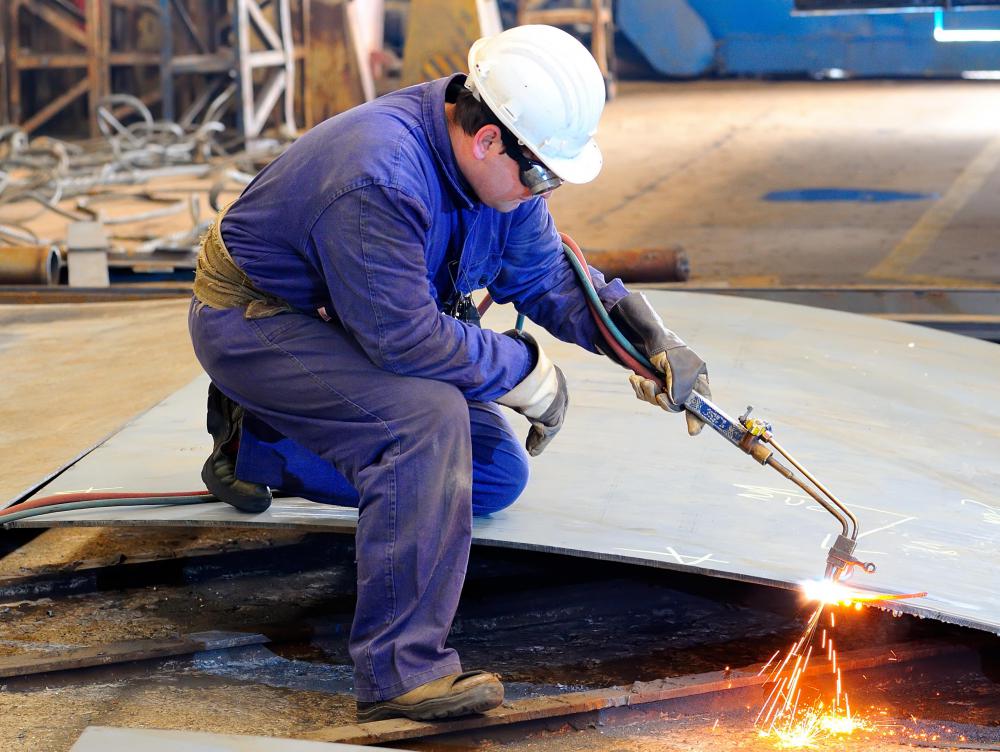
Calcium carbide is a compound produced from a thermally converted combination of coke and lime. It has several industrial applications, the most frequently encountered being the production of acetylene gas. Acetylene is widely used as a less costly alternative to traditional petroleum-based heating fuels in a number of industrial processes. Raw calcium carbide finds additional uses in the steel production industry as a desulfurization and deoxidizing agent. Less common industry applications of calcium carbide include fuel for carbide lamps, the production of polyvinyl chloride (PVC), and fruit ripening.
The acetylene producing characteristics of calcium carbide have been used for many years as a fuel source for illumination, furnaces, and cutting or welding. A product of the high temperature conversion of coke and lime mixtures, calcium carbide produces large quantities of acetylene gas when exposed to water. Prior to the development of viable electric lighting, raw lumps of the compound were widely used in combination with water to produce acetylene burned in carbide lamps to provide illumination for underground mining operations, automobiles, and street lighting. These primitive yet surprisingly effective lamps may still be found in mines in several developing nations. Although several other industry uses for the compound have emerged over the years, the most prevalent contemporary application of calcium carbide is still the generation of acetylene gas.
